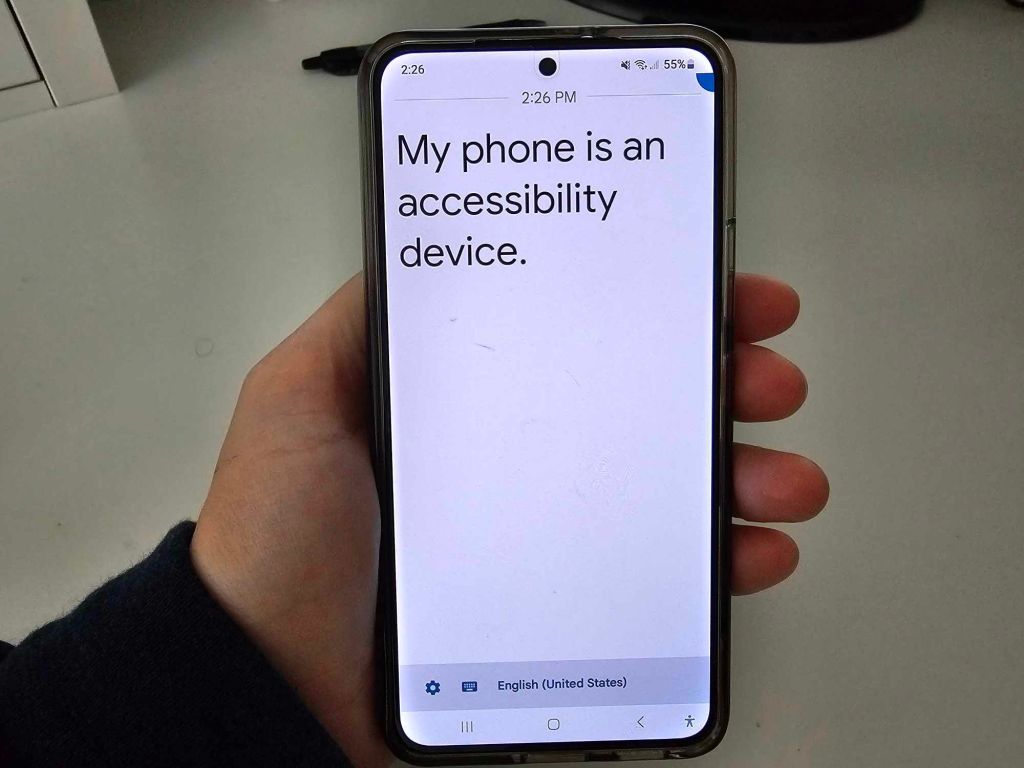Invisible disabilities are hard. I often find that since I am young, no one expects that I have hearing loss. I even had an interaction with a nurse during a surgery pre-op where she apologized she had to ask these questions since I obviously don’t have a hearing aid. I replied, “Well, as I am actually wearing a hearing aid right now, those seem like useful questions.” I have had interactions where people assume I am a rude millennial rather than someone who didn’t hear them. One of these types of situations that can be really awkward is using my phone for accessibility.
There are many situations where I use my phone to help me with my hearing loss. A common one is literally using the app to adjust hearing aid settings. I also have apps that help me by transcribing what is being said into captions. Another use is utilizing my phone for safety concerns – I can have it listen for fire alarms, crying children, door alarms, etc., and vibrate my smartwatch. Those are just the applications I use, there are many more options for smart phones assisting in accessibility matters.
There are times and places where I could really use some of these accessibility features on my phone, and I feel like I cannot use them or I will be judged.
One example of this concern is in professional settings, such as working as an exhibitor at an expo. I find expo halls to have the absolute worst acoustics. I struggle to hear someone just across the table from me. But if I get out my phone to help with transcription, it looks bad. People assume I am ignoring them or goofing off on social media. I have solved this in the past with a tablet, but it would be more convenient to just use the phone I have on me.
Another example where this comes into play is in more formal areas of life, like attending church or theatre. Often, I can understand sound systems or use their hearing loops to send the sound to my hearing aid. However, sometimes hearing loops aren’t an option, or the acoustics are poor and the sound bounces everywhere. Sometimes, I am just fatigued, and reading instead of listening would help me do a much better job of understanding and remembering. Frequently, in those arenas, I don’t feel comfortable using my phone to help me, as I worry what people will think. If I do, I will make it a point to explain to people around me and apologize for any distraction to them.
I wish we could change cultural perception to give folks using phones the benefit of the doubt. There has literally never been a better time for technology to assist people with disabilities, and it seems a huge shame to miss out on the benefits because of cultural stigma. Instead of automatically assuming that someone using a phone is indulging in self gratification, why not think that there is likely a legitimate reason someone has their phone out at that moment? I am going to work on being brave about using tools I know will help me despite cultural stigmas. Join me?

Leave a comment